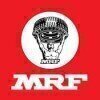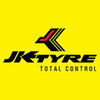Filter interviews by
Valeo Interview Questions and Answers
46 Interview questions
An AC to DC converter transforms alternating current (AC) into direct current (DC) for various electronic applications.
Uses diodes for rectification, converting AC voltage to DC voltage.
Common types include half-wave and full-wave rectifiers.
Half-wave rectifiers allow only one half of the AC waveform to pass, while full-wave rectifiers utilize both halves.
Examples include power supplies for electronic devices, bat...
MOSFETs are voltage-controlled transistors used in switching and amplification, with specific losses during operation.
MOSFET stands for Metal-Oxide-Semiconductor Field-Effect Transistor.
It operates by controlling the flow of current between the drain and source terminals using voltage applied to the gate.
Key losses in MOSFETs include conduction losses, switching losses, and gate drive losses.
Conduction losses occu...
A bending moment diagram visually represents the bending moments along a beam, aiding in structural analysis.
A bending moment diagram (BMD) shows how bending moments vary along the length of a beam.
Constructed by calculating moments at various points due to applied loads.
Positive moments typically indicate sagging, while negative moments indicate hogging.
Example: For a simply supported beam with a central load, th...
The stress-strain curve illustrates how materials deform under stress, showing elastic and plastic behavior.
Elastic Region: Material returns to original shape after stress is removed (e.g., rubber).
Yield Point: The stress at which material begins to deform plastically (e.g., steel).
Plastic Region: Permanent deformation occurs (e.g., clay).
Ultimate Tensile Strength: Maximum stress material can withstand (e.g., alum...
A transformer transfers electrical energy between circuits through electromagnetic induction, adjusting voltage levels as needed.
Consists of primary and secondary coils wound around a magnetic core.
Operates on the principle of electromagnetic induction.
Steps up voltage (step-up transformer) or steps down voltage (step-down transformer).
Example: A step-up transformer increases voltage from 110V to 220V for transmis...
Electricity generation involves converting various energy sources into electrical energy through different methods.
Thermal Power: Uses heat from burning fossil fuels (e.g., coal, natural gas) to produce steam that drives turbines.
Hydropower: Utilizes flowing water to turn turbines, generating electricity (e.g., Hoover Dam).
Wind Power: Converts kinetic energy from wind into electricity using wind turbines (e.g., of...
To measure current with a multimeter, set the multimeter to the current measurement mode, connect the multimeter in series with the circuit, and read the current value displayed on the multimeter.
Set the multimeter to the current measurement mode (usually denoted by 'A' for Amperes)
Turn off the power to the circuit before connecting the multimeter in series
Connect the multimeter in series with the circuit - place ...
Power supplied from a socket is alternating current (AC).
Most household sockets provide AC power
AC power changes direction periodically
DC power is commonly used in batteries and some electronics
Typical voltage supplied by an electrical socket is 120 volts, while the current can vary depending on the country and type of socket.
Voltage supplied by an electrical socket is typically around 120 volts
Current supplied can vary depending on the country and type of socket
In the US, standard electrical sockets provide 120 volts AC at 15-20 amps
In Europe, standard electrical sockets provide 230 volts AC at 16 amps
The circuit consists of a DC source, resistor, and laser diode, each serving a specific function in the operation.
DC Source: Provides a constant voltage or current to the circuit, e.g., a battery or power supply.
Resistor: Limits the current flowing through the circuit to protect components, e.g., a 220-ohm resistor.
Laser Diode: Converts electrical energy into coherent light, used in applications like laser pointer...
Valeo Interview Experiences
96 interviews found
I appeared for an interview in Jan 2025.
Basic questions on electronic switches and electronics. Basic questions on coding
(6 Questions)
- Q1. Is the power supplied from a socket alternating current (AC) or direct current (DC)?
- Ans.
Power supplied from a socket is alternating current (AC).
Most household sockets provide AC power
AC power changes direction periodically
DC power is commonly used in batteries and some electronics
- Q2. What is the typical voltage and current supplied by an electrical socket?
- Ans.
Typical voltage supplied by an electrical socket is 120 volts, while the current can vary depending on the country and type of socket.
Voltage supplied by an electrical socket is typically around 120 volts
Current supplied can vary depending on the country and type of socket
In the US, standard electrical sockets provide 120 volts AC at 15-20 amps
In Europe, standard electrical sockets provide 230 volts AC at 16 amps
- Q3. How will you measure current if you are provided with a multimeter?
- Ans.
To measure current with a multimeter, set the multimeter to the current measurement mode, connect the multimeter in series with the circuit, and read the current value displayed on the multimeter.
Set the multimeter to the current measurement mode (usually denoted by 'A' for Amperes)
Turn off the power to the circuit before connecting the multimeter in series
Connect the multimeter in series with the circuit - place the m...
- Q4. The interviewer drew a circuit having a dc source, resistor and a laser diode and asked us to name the components
- Ans.
The circuit consists of a DC source, resistor, and laser diode, each serving a specific function in the operation.
DC Source: Provides a constant voltage or current to the circuit, e.g., a battery or power supply.
Resistor: Limits the current flowing through the circuit to protect components, e.g., a 220-ohm resistor.
Laser Diode: Converts electrical energy into coherent light, used in applications like laser pointers or ...
- Q5. Questions about microcontroller Arduino
- Q6. How many pins does Arduino have, how will you code programs in it such questions
- Ans.
Arduino Uno has 14 digital pins and 6 analog pins for coding programs.
Arduino Uno has 14 digital pins (0-13) and 6 analog pins (A0-A5)
Digital pins can be used for input/output operations while analog pins can read analog signals
To code programs in Arduino, you can use the Arduino IDE and write C/C++ based sketches
Interview Preparation Tips
(2 Questions)
- Q1. Memory hierarchy in OS
- Ans.
Memory hierarchy in OS refers to the organization of different types of memory in a computer system.
Memory hierarchy typically includes registers, cache memory, main memory (RAM), and secondary storage (hard drive, SSD).
Registers are the fastest and smallest type of memory, located within the CPU.
Cache memory is a small, fast memory located between the CPU and main memory, used to store frequently accessed data.
Main me...
- Q2. Explain memory leak.
- Ans.
Memory leak is a situation where a program fails to release memory it has allocated, leading to a gradual loss of available memory.
Memory leaks occur when a program allocates memory but does not release it when it is no longer needed.
This can lead to a gradual decrease in available memory, eventually causing the program or system to crash.
Common causes of memory leaks include improper management of dynamic memory alloc...
(3 Questions)
- Q1. Insertion sort implement in c++
- Ans.
Insertion sort is a simple sorting algorithm that builds the final sorted array one item at a time.
Start from the second element and compare it with the elements before it to find the correct position.
Repeat this process for all elements in the array.
Time complexity is O(n^2) in the worst case scenario.
Example: void insertionSort(string arr[], int n) { for (int i = 1; i < n; i++) { string key = arr[i]; int j = i - 1; w...
- Q2. Matrix chain multiplication DSA problem
- Ans.
Matrix chain multiplication is a dynamic programming problem to find the most efficient way to multiply a given sequence of matrices.
Use dynamic programming to solve this problem efficiently.
Create a 2D array to store the minimum number of multiplications needed to multiply matrices.
Iterate over different combinations of matrices to find the optimal solution.
Example: For matrices A, B, C with dimensions 10x30, 30x5, 5x...
- Q3. Explain project
- Ans.
Developed a web application for tracking project progress and managing tasks
Used React.js for front-end development
Implemented RESTful APIs using Node.js and Express for back-end
Utilized MongoDB for database storage
(2 Questions)
- Q1. Hell about your self.
- Ans.
I am a software development engineer with 5 years of experience in building scalable web applications.
5 years of experience in software development
Proficient in building scalable web applications
Strong knowledge of programming languages such as Java, Python, and JavaScript
- Q2. Why you want to join this company.
- Ans.
I am impressed by the company's innovative projects and collaborative work culture.
Innovative projects in AI and machine learning excite me
Positive reviews from current employees about the work environment
Opportunities for growth and learning in a supportive team
Interview Preparation Tips
Keep strong basic fundamental of c++.
prepare project well.
Skills evaluated in this interview
I applied via Approached by Company and was interviewed in Mar 2024. There were 6 interview rounds.
(1 Question)
- Q1. Questions related to how you align with job skills & experience and evaluate your technical stuffs
(1 Question)
- Q1. Multi Choice questions to test your technical knowledge
(1 Question)
- Q1. Core round of interview process
(1 Question)
- Q1. Catia/NX software
(1 Question)
- Q1. One on one with On-site manager
(1 Question)
- Q1. Reason for job change, etc
- Ans.
I am seeking new challenges and opportunities for growth that align with my career goals and aspirations.
Desire for professional growth: I want to take on more leadership responsibilities, as I have led projects successfully in my current role.
Seeking new challenges: My current position has become routine, and I am eager to work on innovative projects that push my limits.
Alignment with career goals: I am looking for a ...
I applied via Approached by Company and was interviewed in Apr 2024. There were 3 interview rounds.
(2 Questions)
- Q1. System Engineering processes
- Q2. Aspice related points
(1 Question)
- Q1. Calibration, FMEA, system controls, Vibration measurements. Vehicle dynamics
(1 Question)
- Q1. Salary expectation, reason to join valeo
Interview Preparation Tips
(1 Question)
- Q1. How you manage stressful situations
- Ans.
I manage stressful situations by staying organized, prioritizing tasks, taking breaks, and seeking support from colleagues.
Stay organized by creating to-do lists and setting realistic goals
Prioritize tasks based on deadlines and importance
Take short breaks to clear my mind and refocus
Seek support from colleagues or supervisors when feeling overwhelmed
(1 Question)
- Q1. How buck converter works
- Ans.
A buck converter is a type of DC-DC converter that steps down voltage while increasing current.
Converts higher voltage to lower voltage
Uses inductor and capacitor to store and release energy
Efficient for battery-powered devices
Example: Charging a smartphone from a higher voltage source
I appeared for an interview in Dec 2024, where I was asked the following questions.
- Q1. Self introduction
- Q2. About family about the job
- Q3. How many years experience about the company
- Ans.
I have over five years of experience with the company, contributing to various projects and initiatives that drive success.
Joined the company in 2018, initially working in the marketing department.
Led a team to launch a successful product campaign that increased sales by 30%.
Transitioned to project management in 2020, overseeing cross-functional teams.
Implemented process improvements that reduced project timelines by 1...
(1 Question)
- Q1. All project related worked with earler companies.
I applied via Referral and was interviewed in Jan 2024. There was 1 interview round.
(5 Questions)
- Q1. What do you working software
- Ans.
Working software is software that is functional, reliable, and meets the requirements of the end users.
Working software should be able to perform the tasks it was designed for without errors or bugs.
It should be reliable and consistent in its performance.
The software should meet the needs and expectations of the end users.
Regular updates and maintenance should be done to ensure the software remains in working condition...
- Q2. Catia v5,v6 Core tech
- Q3. Clip simulation
- Q4. Installation and regulation
- Q5. Drawing cad catia
Interview Preparation Tips
- Q1. Why joining this company
- Q2. What u expect from this company
I applied via LinkedIn and was interviewed in Nov 2023. There was 1 interview round.
(5 Questions)
- Q1. Embedded qns and oops qns
- Q2. What is virtual function
- Q3. What is polymorphism
- Q4. Please don't attend this interview
- Q5. Idon'tknow hahab
Interview Preparation Tips
Skills evaluated in this interview
Top trending discussions







Valeo Interview FAQs
The duration of Valeo interview process can vary, but typically it takes about less than 2 weeks to complete.
Tell us how to improve this page.
Valeo Interviews By Designations
- Valeo Software Engineer Interview Questions
- Valeo Graduate Engineer Trainee (Get) Interview Questions
- Valeo Design Engineer Interview Questions
- Valeo Intern Interview Questions
- Valeo Hardware Engineer Interview Questions
- Valeo Senior Engineer Interview Questions
- Valeo Software Developer Interview Questions
- Valeo Quality Engineer Interview Questions
- Show more
Interview Questions for Popular Designations
- Software Engineer Interview Questions
- Design Engineer Interview Questions
- Graduate Engineer Trainee (Get) Interview Questions
- Senior Executive Interview Questions
- Software Developer Interview Questions
- Business Analyst Interview Questions
- Senior Software Engineer Interview Questions
- Manager Interview Questions
- Show more
Overall Interview Experience Rating
based on 86 interview experiences
Difficulty level
Duration
Interview Questions from Similar Companies
Valeo Reviews and Ratings
based on 1.3k reviews
Rating in categories
|
Software Engineer
411
salaries
| ₹3.5 L/yr - ₹11.8 L/yr |
|
Senior Software Engineer
282
salaries
| ₹8 L/yr - ₹25 L/yr |
|
Senior Engineer
244
salaries
| ₹5.3 L/yr - ₹19.5 L/yr |
|
Design Engineer
213
salaries
| ₹3.2 L/yr - ₹12.1 L/yr |
|
Senior Design Engineer
190
salaries
| ₹6.6 L/yr - ₹20 L/yr |

Bosch

MRF Tyres

UNO Minda

Apollo Tyres
- Home >
- Interviews >
- Valeo Interview Questions













